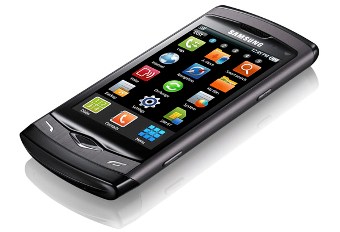
 Since 1949, pagers have remained one of the most commonly used technologies among all hospital personnel. However, researchers in the United Kingdom are looking to change this. They recently as-sessed whether a new wireless system can decrease some of the efficiencies of pager systems in hospit-als.
Since 1949, pagers have remained one of the most commonly used technologies among all hospital personnel. However, researchers in the United Kingdom are looking to change this. They recently as-sessed whether a new wireless system can decrease some of the efficiencies of pager systems in hospit-als.
The researchers designed their wireless system to address a problem which occurs in health systems throughout the world. The problem being that most health care personnel work during regular 9 to 5 work hours, but patients are in the hospital much longer (16 hours longer during any given day).
As a result, there is a drop in hospital services after regular work hours.
The researchers also indicated that with decreased work hour standards for their junior doctors (same as residents in the US), there is an even greater drop in services in the hospital. In the UK, this night time drop in services is being managed by an initiative called Hospital At Night in which senior nurses triaged night time problems and coordinate existing hospital resources in an effort to improve clinical care and decrease any potential safety problems associated with having more junior people in charge at night.
The Hospital At Night project is run mainly with landlines which leads to a number of inefficiencies that impact patient care. The main problem is a common scene in hospitals relying on landlines for communication. Clinical care is delayed by the nurse coordinator constantly paging doctors and waiting on their responses.

Another problem is that junior doctors often waste time searching for a landline to use. These problems lead to delays in clinical action being taken. Also, there has been low morale for the senior nurse coor-dinator who spends all night talking on the phone and not engaging in clinical care and truly using her/his skill set. As a result of these problems, the researchers realized that a better approach was needed.
The researchers at Nottingham University Hospital worked with a private company, NerveCentre Software, to develop software to address their inefficiencies. They also purchased a Medical Grade Network from Cisco Systems. This is a secure wireless network system developed for health care in-stitutions unique privacy and confidentiality needs. Both changes led to a new task allocation and management system in the hospital that was completely wireless.
With the new system, tasks are entered into the system and sent wirelessly to the nurse coordinator who carries a wireless tablet PC. The coordinator assigns the task to a team that receives the information on their mobile phones, which are dedicated to hospital work. The team can accept or reject the task. Once accepted the task remains visible to the team and to the coordinator until it is complete.


Be a part of Elets Collaborative Initiatives. Join Us for Upcoming Events and explore business opportunities. Like us on Facebook , connect with us on LinkedIn and follow us on Twitter , Instagram.
"Exciting news! Elets technomedia is now on WhatsApp Channels Subscribe today by clicking the link and stay updated with the latest insights!" Click here!
















